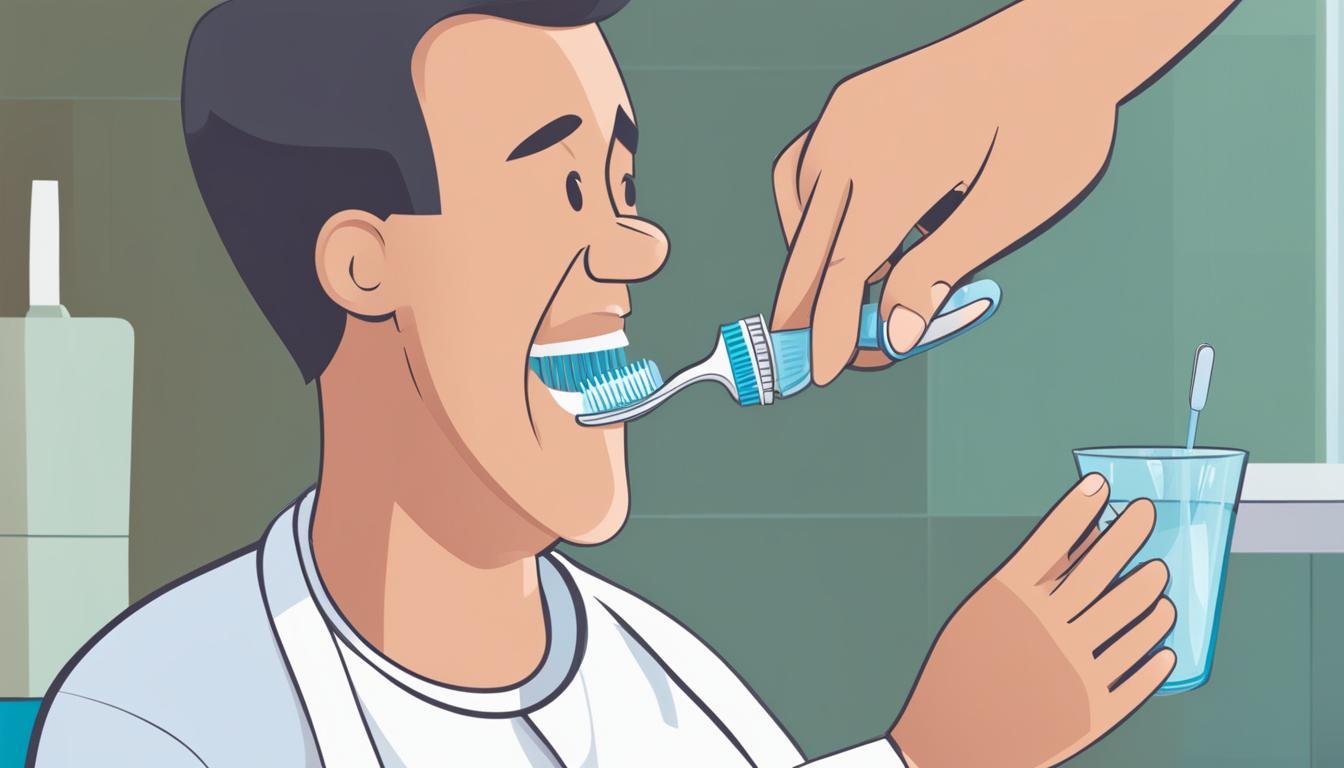After undergoing dental implant surgery, it is important to follow specific food restrictions to promote proper healing and reduce the risk of complications. One food group that should be avoided during the recovery period is dairy products. Dairy products can have an inflammatory response on oral tissues, interfere with the healing process, and potentially cause complications like infection or dislodging of the implant. Avoiding dairy products can minimize irritation, inflammation, and infection risks around the implant site, allowing for efficient healing. Soft foods can be substituted to ensure a healthy diet during recovery.
Key Takeaways:
- Avoid dairy products after dental implant surgery to minimize inflammation and infection risks.
- Dairy can interfere with the healing process and potentially cause complications.
- Choose soft foods as substitutes for dairy to maintain a healthy diet during recovery.
- Consult with your dental professional for specific dietary guidelines and post-implant care.
- Proper healing is crucial for the long-term success of dental implants.
The Importance of Soft Foods in Dental Implant Recovery
After undergoing dental implant surgery, it is crucial to follow a specific diet to promote proper healing and minimize the risk of complications. One important aspect of this diet is the inclusion of soft foods. Soft foods are gentle on the surgical site, allowing for efficient healing while minimizing discomfort. Here are some reasons why soft foods are essential during dental implant recovery:
- Easy to Chew: Soft foods are easier to chew and require less force, reducing the strain on the implant site and minimizing the risk of implant movement or dislodging.
- Minimizes Discomfort: Hard, crunchy, and sticky foods can cause discomfort and irritation around the surgical site. Soft foods, on the other hand, are gentle and less likely to cause any additional pain.
- Provides Nutrition: Despite the food restrictions, it is important to maintain a balanced diet to support the healing process. Soft foods like eggs, mashed potatoes, pureed soups, and cooked vegetables can provide essential nutrients without compromising the recovery.
Eating soft foods during dental implant recovery not only promotes proper healing but also ensures a comfortable and pain-free experience. It is important to follow the dental professional’s aftercare instructions and consult with them regarding the specific dietary guidelines for your unique situation.
Soft Food Ideas:
- Scrambled eggs or omelets
- Mashed potatoes
- Pureed soups
- Cooked vegetables
- Yogurt
- Smoothies
- Ground meat or fish
Remember to gently rinse your mouth with a saltwater solution after meals to keep the implant site clean and reduce the risk of infection. By following a soft food diet and maintaining good oral hygiene, you can ensure a successful dental implant recovery.

3. Consulting with Your Dental Professional
Throughout the dental implant recovery process, it is essential to maintain regular communication with your dental professional. They will provide you with specific post-implant care instructions tailored to your individual needs. Following these instructions diligently and seeking their guidance for any concerns or questions can significantly contribute to proper healing and long-term implant success.
By prioritizing the dental implant healing process, avoiding infection, and maintaining open communication with your dental professional, you can ensure a successful and enduring outcome for your dental implant.
Conclusion
In conclusion, the belief that dairy should be completely avoided after dental implant surgery lacks strong scientific evidence. While some patients may experience minor inflammation or irritation from dairy products, they can still be consumed in moderation. It is important to make wise choices and follow dental advice to support the recovery process.
During the recovery period, it is crucial to adhere to a soft food diet to promote proper healing and minimize the risk of implant complications. Hard, crunchy, and sticky foods should be avoided, while gentle rinsing with a saltwater solution after meals can help maintain oral hygiene.
Proper healing is essential for long-term implant success, and following post-implant care instructions and consulting with your dental professional are vital. While there are no strict dietary guidelines for dairy consumption, limiting intake, choosing low-fat varieties, and considering dairy alternatives can be beneficial. Ultimately, a balanced diet and proper oral care are key to ensuring optimal recovery and successful dental implant outcomes.
FAQ
Why is it important to avoid dairy products after dental implant surgery?
Dairy products can have an inflammatory response on oral tissues, interfere with the healing process, and potentially cause complications like infection or dislodging of the implant. Avoiding dairy products minimizes irritation, inflammation, and infection risks around the implant site, allowing for efficient healing.
What kind of foods should I eat during dental implant recovery?
Soft and easily chewable foods such as eggs, mashed potatoes, pureed soups, cooked vegetables, yogurt, smoothies, and ground meat are recommended for the initial recovery stages. Hard, crunchy, and sticky foods should be avoided to prevent discomfort and potential dislodging of the implant.
Can I have dairy products after dental implant surgery?
While there is no strong scientific evidence showing that dairy needs to be completely eliminated, some patients may experience minor inflammation or irritation from dairy. Choosing low-sugar and low-acid dairy alternatives, such as plain yogurt or milk, can be beneficial. Thick, sticky dairy products should be avoided as they can slightly increase infection risks around the implant site.
How can I ensure proper healing and long-term implant success?
Following recommended dietary restrictions, avoiding foods that can disrupt the healing process, maintaining good oral hygiene, and following post-implant care instructions are important for proper healing and long-term implant success. Gradually introducing soft foods into the diet as the jawbone fuses with the implant is recommended.
What is the importance of post-dental implant care?
Proper post-dental implant care is essential for optimal healing and successful recovery. Following post-implant care instructions and consulting with the dental professional can help prevent complications, ensure proper healing, and support long-term implant success.

